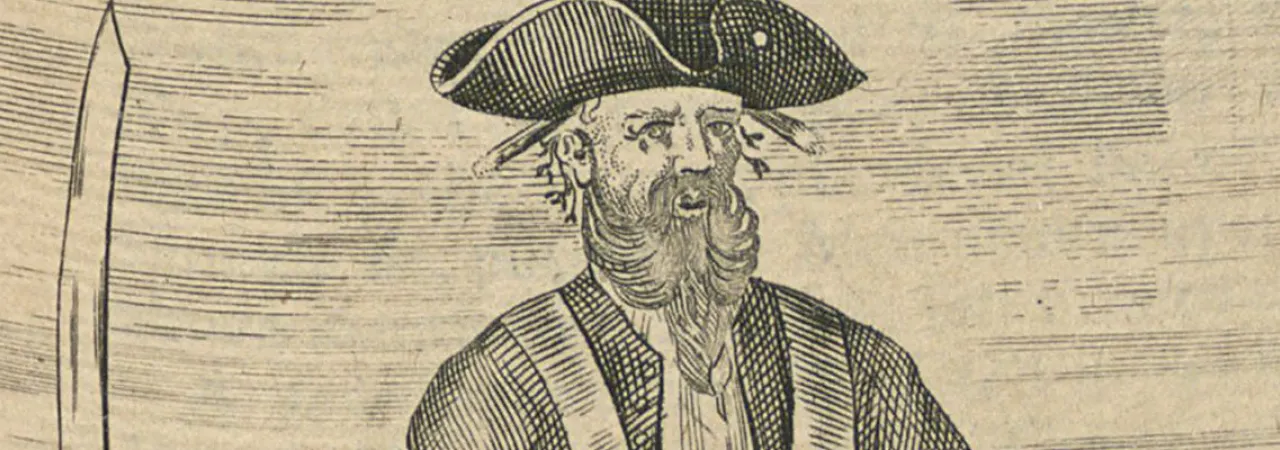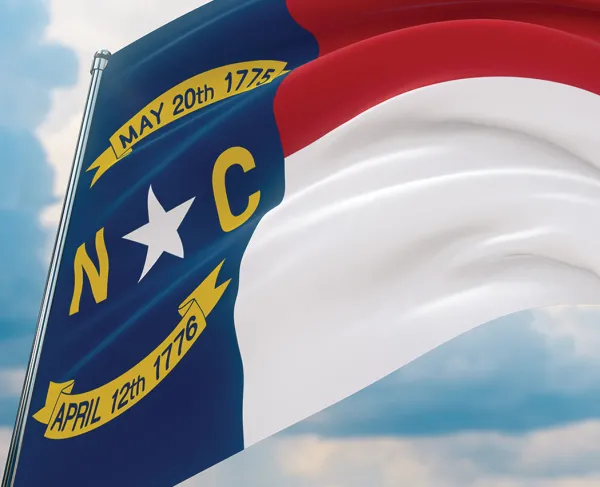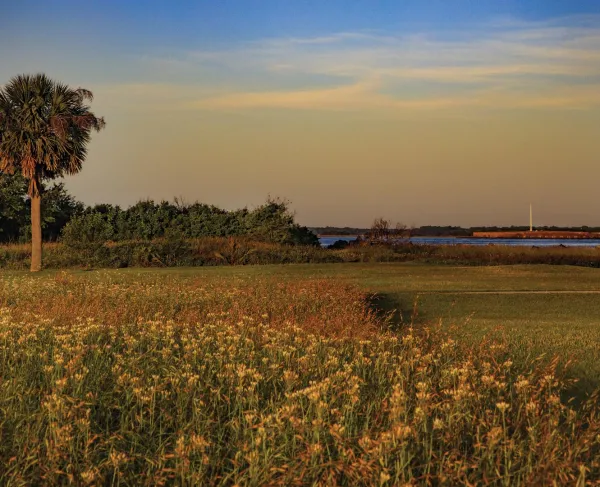Patrick Henry on March 23, 1775, said to the Second Virginia Convention, “Give me Liberty or Give me Death!” in Saint John’s Episcopal Church in Richmond, Virginia. Patrick Henry’s speech to the Second Virginia Convention was a revolutionary thought. His speech catalyzed the Revolutionary War. Before Patrick Henry and many other Founding Fathers, however, another group of people believed in a similar motto. This group of people was none other than pirates. Their rallying cry, “Damnation seize my soul if I give you quarters, or take any from you.”
Pirates in the Colonial era of American history were some of the most well-known people of their time. Legends in the pantheon of maritime history include Captain “Blackbeard” Edward Teach, Captain Kidd, Captain Bartholomew Roberts, Captain Morgan, and Captains Anne Bonny and Mary Read. They all influenced the American romanticization of pirates through entertainment as much as they did British foreign policy. Before the establishment of the United States, pirates were one of the main mechanisms in which the British Empire carried out their goals of domination in the New World. Pirates under the loose contract of Britain robbed, plundered, and killed French, Spanish, and Dutch vessels to eliminate competition to further British interests in the New World.

In the 13 Colonies, however, pirates were much different than in the Caribbean. Pirates in Colonial America acted as a middleman between the colonists and the Crown. Early piracy in the early to mid-17th century shows that piracy fueled a bulk of British colonization ventures. Both Virginia and Jamaica openly supported piracy in this period due to the ease of access to slaves through the Columbian Exchange. Many other colonial governors also publicly conducted business with pirates. At the end of the 17th century, the British started to systematically hunt down pirates due to their usefulness waning since Britain had an established foothold in the New World. Between 1680 and 1713, however, pirates were crucial in establishing and maintaining an illicit trade network of pilfered goods in and out of the colonies. Pirates were still lucrative trade partners with colonial governors. Many governors, such as William Markham, the Governor of Pennsylvania from 1681 to 1682 and from 1693 to 1699, supported pirates against the will of the British. He believed that any steady stream of income into Pennsylvania, no matter the means, was a common good to the colony. Another governor, Benjamin Fletcher, went a step further. Fletcher was a business partner with Thomas Tew, known as the "Rhode Island Pirate." Tew was a privateer turned pirate and is credited with inspiring Captains Henry Every and William Kidd. Fletcher’s business dealings with Tew were providing material support and conducting business. Eventually, by 1697, the British government found out about these business dealings and removed Fletcher from office and Fletcher returned to England in 1703.
Throughout the Colonial Era, a divide began to form between the Thirteen Colonies and the British in regard to pirates. In some cases, British law and colonial law differed. This was the case with many pirate trials. Many colonial governments, like Pennsylvania and New York, welcomed pirates due to the financial gain. There eventually became two different definitions of piracy for many years, which led to a confusing and expansive legal code. This confusing legal code expanded into other areas of law, and many colonists found the legal code to be absurd due to Britain's vast distance away from America. A specific quote by Thomas Paine, a former privateer, in Common Sense explains the colonist’s frustrations:
To be always running three or four thousand miles with a tale or a petition, waiting four or five months for an answer, which when obtained requires five or six more to explain it in, will in a few years be looked upon as folly and childishness—There was a time when it was proper, and there is a proper time for it to cease.
In 1713, the British and Spanish Empires signed an Asiento under the Treaty of Utrecht, which allowed the British Empire to control the slave trade for thirty years. This directly impacted pirates, as many pirates dealt in the slave trade. Before the Asiento, pirates were not the bloodthirsty and ruthless creatures that many wrote about. Instead, many pirate captains formed their own codes of conduct. Captain Bartholomew Roberts in particular, had eleven codes. Most striking is the first code, “Every Man has a Vote in Affairs of Moment; has equal Title to the fresh Provisions, or strong Liquors, at any Time seized, and use them at pleasure, unless a Scarcity (no uncommon Thing among them) make it necessary, for the good of all, to vote a Retrenchment.” This first rule upon Captain Roberts’ ship was revolutionary behavior in the colonial era. These revolutionary principles that showed the beginnings of democracy are what could have been the precursor to the Declaration of Independence, or The Constitution. Many pirates themselves wanted to get away from British control. Many pirates sought a new life. Tales of pirate utopias emerged, such as the Land of Cockaygne and Libertatia. However, many pirates instead lived in varying degrees of freedom in places such as Tortuga, an island off the coast of modern-day Haiti. Pirates also frequented Colonial America as a haven. Port cities such as Boston, Massachusetts, New York City, Baltimore, Maryland, Richmond, Virginia, Charleston, South Carolina, and Philadelphia, Pennsylvania all had pirates seeking shelter, food, and entertainment while not on the high seas.
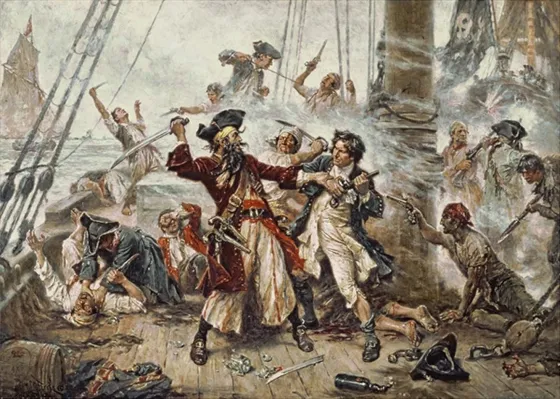
After 1713, however, the British Empire deployed all means necessary to dispatch of all pirates in the New World. The British achieved this through intimidation in their colonies. In the Thirteen Colonies, the British declared many proclamations denouncing piracy and that, “in His MAJESTIES Name, strictly to Charge and Require all Persons whatsoever within this Jurisdiction, not to resort unto, or in any wise joyn themselves with [pirates], nor to receive or conceal any of the Goods coming out of said Ship…nor nourish or comfort in any kind Entertain, Consel, Trade, or hold any Correspondance…” These proclamations shifted the mindset of colonists to despise and denounce pirates in the colonies. Colonists were further horrified of pirates due to many abhorrent stories of pirates. One pirate, in particular, Captain Edward Teach, or Blackbeard instilled terror in the 13 Colonies. A description of Blackbeard that became engrained in the minds of colonists was made by Captain Charles Johnson:
Captain Teach, assumed the Cognomen of Black-beard, from that large Quantity of Hair, which…was black, which he suffered to grow of an extravagant Length; as to Breadth, it came up to his Eyes; he was accustomed to twist it with Ribbons, in small Tails…In Time of Action, he wore a Sling over his Shoulders, with three brace of Pistols, hanging in Holsters like Bandaliers; and stuck lighted Matches under his Hat…
In addition to his description, his actions are what made him a feared pirate. In May of 1718, Blackbeard blockaded Charleston Harbor, South Carolina, for a week in need of medicine. During that week, he plundered treasures and people for ransom in return for the medication that he needed. By the end of the week, he received his medicine and left Charleston for his sanctuary of Ocracoke, North Carolina, just off the North Carolina mainland in the Outer Banks in his ship Queen Anne’s Revenge. The Treaty of Utrecht virtually eliminated pirates, as many former pirates were able to formally become privateers. Pirates that sailed after the Treaty of Utrecht in 1713 denounced the British government and actively fought against them, as Blackbeard did for some time as well as many other pirates. Pirate's presence was not only unneeded, but it also presented a political and social threat to the British. After 1713, pirates were deemed enemies of the state, where they were once tolerated and legitimized. Pirates began to act aggressively towards colonists and the British in America. Where once they were welcomed by colonial governors, they were now vilified, which caused many pirates to turn to violence much quicker.
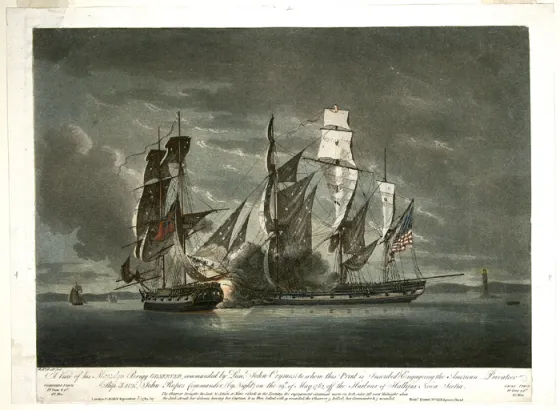
By the Revolutionary War, pirates were a dying breed. However, the Continental Congress contracted privateers allowing for piracy to be legal against the British. 55,000 sailors served as privateers in the Revolutionary War. Patriot pirates during the Revolutionary War mostly remained in the Long Island Sound as their sanctuary. These patriot pirates seized and destroyed 600 British vessels, and raided many Loyalist regions along the coast. They also participated in the Battle of Halifax, Nova Scotia. By the end of the Revolution, privateers had looted $18 million ($302 million in modern currency) in assets.
Pirates in the Colonial Era of American history were revolutionary individuals. While their actions were abhorrent, such as pilfering goods and ruthless murder of the French, Spanish, Dutch, and British Empires, as well as their involvement in the slave trade, pirates were among the first bastions of liberty in a world in which liberty was a radical idea. The romanticization of pirates in the colonial era of American history is most often misunderstood and focuses on the ruthless actions that pirates made on the high seas. However, the true story of pirates in this era is a story of freedom and liberty and rejection of the monarchial system of government. Piratical society was not determined by a king who was appointed under God, but rather by the people. This idea translates into the United States Constitution and Declaration of Independence where, “Governments are instituted among Men, deriving their just powers from the consent of the governed...” Pirates were the first in this era to live up to the meaning of the phrase.
Further Reading:
- The Politics of Piracy: Crime and Civil Disobedience in Colonial America By: Douglas R. Burgess Jr.
- Black Flags, Blue Waters: The Epic History of America's Most Notorious Pirates By: Eric Jay Dolin
- Pirate Nests and the Rise of the British Empire, 1570-1740 By: Mark G. Hanna
- The Many-Headed Hydra: Sailors, Slaves, Commoners, and the Hidden History of the Revolutionary Atlantic By: Peter Linebaugh and Marcus Rediker
- Patriot Pirates: The Privateer War for Freedom and Fortune in the American Revolution By: Robert H. Patton
